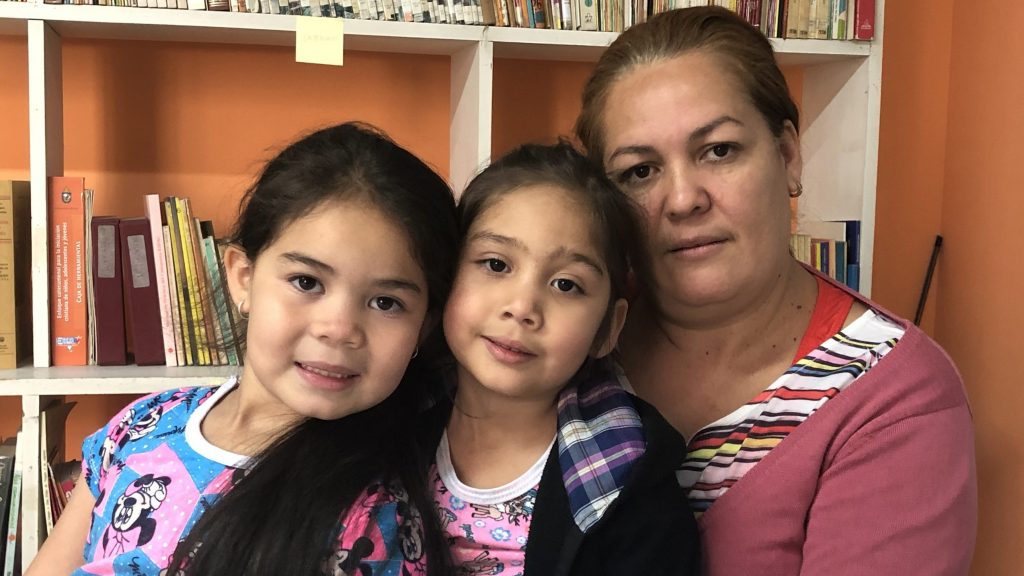When she decided to emigrate from Venezuela, Addy Arrieche had not seen her husband for two years, and her two little daughters had not attended school for three months.
About two years ago, they left their home and their family behind, Arrieche said, because of the difficult situation that their country is going through: no food or medicine, an accelerated rate of inflation and a lot of insecurity.
"The situation became increasingly difficult for us," Arrieche said in a room of the San Francisco Villa Javier parish, home of the Institute for the Construction of Peace Foundation, known by its Spanish acronym as FICONPAZ.
Arrieche expressed her hope for a better future for her daughters, Anahys, 6, and Anabella, 4, whom she wants to continue training in the Catholic faith. She wants to offer them "a good education" so they become good people. Her husband is also in Bogota, working at another parish.
"I feel good here and I thank FICONPAZ for giving us their support. I thank the church also because we are participating with them in several workshops, and we are grateful for the donations that have been received to continue with these projects," she stated.
The Institute for the Construction of Peace Foundation is one of about 400 regional programs financed by the U.S. Conference of Catholic Bishops; the institute received a $20,000 grant in 2019 from the Subcommittee on the Church in Latin America.
Arrieche was one of the mothers who joined program facilitators, volunteers and dozens of migrant children from the most vulnerable communities in Colombia and Venezuela to share their experiences with Auxiliary Bishop Octavio Cisneros of Brooklyn, chairman of the USCCB subcommittee.
Founded in 1996, FICONPAZ is dedicated to the construction of a culture of peace, designing and developing processes in communities and vulnerable sectors of the population. It emphasizes peaceful resolution of conflicts and the defense and promotion of human rights.
To help with the current migration of Venezuelans to Colombia, trained laypeople from the Archdiocese of Bogota support Venezuelan migrant children and adolescents to make them less vulnerable to the effects of discrimination, violence and denial of their fundamental rights.
Arrieche said that, through all her troubles, she still maintains her faith for a better future for her family, especially her children.
In Colombia, "hope has been reborn because time goes by so fast, and we want to work the future for them. We have always wanted to give them a good education, teach them values, responsibilities so that they are good people, always following the Catholic religion ... to learn well from God. I think they can have a better future here than they can have in Venezuela," Arrieche said.
"We must have faith in God, because he is the one who is going to help us out of this situation, and I hope one day to return to Venezuela so that our family can reunite with all the loved ones that we were forced to leave there," she added.
Milidex Ortiz is another Venezuelan mother who benefits from the program, having crossed the border between Colombia and Venezuela two years ago.
"The situation from the beginning has not been easy, but here they have opened the doors, and we participate in the workshops; we share experiences and our children receive attention," said Ortiz, born in Zulia state, which borders Colombia.
"We emigrated because of the severe crisis that affects the country. I used to work in Venezuela, and the minimum salary I earned was enough to eat for only one day," said Ortiz.
"It was difficult to make the decision to emigrate, but here I am," she said, with her youngest son, Santiago Jose, in her arms. Her other son, Luis Jose, 8, was in school.
"It is not easy, but it is better to live here because, although I do not have a job right now, my children are being given their education and good food at school, something that is not achieved in Venezuela," she said.

